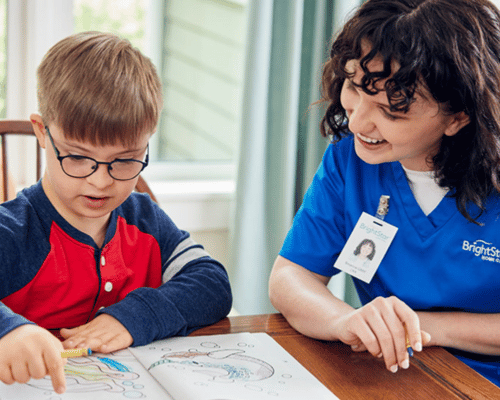Pediatric nursing is a rewarding and challenging field that requires unique skills to provide the best care to young patients. This article will explore the essential qualities, expertise, and knowledge that pediatric nurses need to excel in their profession. Whether you are a seasoned pediatric nurse looking to refine your skills or someone aspiring to join this noble profession, this guide is for you.
Empathy and Compassion
Pediatric nursing involves working with children, adolescents, and their families during illness or injury. These young patients often feel scared, vulnerable, and anxious. An essential skill for a pediatric nurse is empathizing and showing genuine compassion. By understanding the emotions of young patients and their families, nurses can create a comforting and supportive environment that aids in the healing process.
Pediatric nurses with a high level of empathy can connect emotionally with their patients and their families. They can put themselves in the shoes of a frightened child or a worried parent, helping to alleviate fears and anxieties. Compassion, on the other hand, drives nurses to offer comfort, support, and reassurance. Understanding allows nurses to be a source of strength for families going through challenging times.
Effective Communication
Clear and compassionate communication is crucial in pediatric nursing. Nurses must be able to communicate with children at their level of understanding while effectively conveying information to parents and caregivers. Using simple language, visual aids, and even play, pediatric nurses can explain medical procedures, address concerns, and alleviate fears, ensuring that everyone involved is well-informed and comfortable.
Effective communication goes beyond just conveying information—it involves active listening and understanding. Pediatric nurses must listen attentively to parent's and children's questions, concerns, and feedback. By listening carefully, nurses can tailor their responses to the needs of each individual, building trust and rapport.

Patience and Adaptability
Dealing with pediatric patients can be unpredictable, as their moods and reactions can change rapidly. Pediatric nurses must exhibit patience and adaptability to handle challenging situations calmly. Whether administering medication, performing procedures, or managing behavioral issues, remaining patient and flexible is critical to providing quality care.
Patience allows nurses to give children the time to understand and cooperate with medical procedures. It also enables nurses to manage potentially tricky behaviors with composure and understanding. On the other hand, adaptability ensures that nurses can quickly adjust their approach based on the child's reaction or changing circumstances.
Clinical Expertise
Solid clinical skills are fundamental for pediatric nurses. From assessing vital signs to administering medications, pediatric nurses must have a strong foundation in medical knowledge and practical applications. This expertise allows them to provide accurate diagnoses, identify potential complications, and collaborate effectively with physicians and other healthcare professionals.
Clinical expertise encompasses many skills, including knowledge of pediatric illnesses, treatment protocols, and the ability to accurately interpret medical data. It also involves critical thinking skills to assess complex situations, make informed decisions, and provide safe and effective care.
Child-Friendly Approach
Creating a child-friendly and welcoming environment is essential for building trust with young patients. Pediatric nurses often use creative techniques to ease anxiety and encourage cooperation. This can include using age-appropriate toys and colorful decorations and even incorporating play elements into medical procedures, helping children feel more comfortable and less afraid.
A child-friendly approach involves tailoring the healthcare environment to the child's perspective. This might mean explaining procedures using simple language and visuals, distracting children with engaging activities, or using humor to ease tension. Pediatric nurses foster a positive association with medical experiences by making healthcare feel less intimidating.
In the dynamic world of pediatric nursing, possessing these five essential skills is crucial for providing exceptional care to young patients. From empathy and effective communication to clinical expertise and a child-friendly approach, pediatric nurses play a vital role in the well-being of children and their families. By cultivating these skills, nurses can contribute to a nurturing and healing environment that supports children through their medical journey.
Remember, becoming a skilled pediatric nurse takes time and dedication, but your impact on young patients' lives can be enriching.

